INTERNACIONAL
At least 8 killed, dozens wounded in Israel after Iran launches new wave of missile strikes
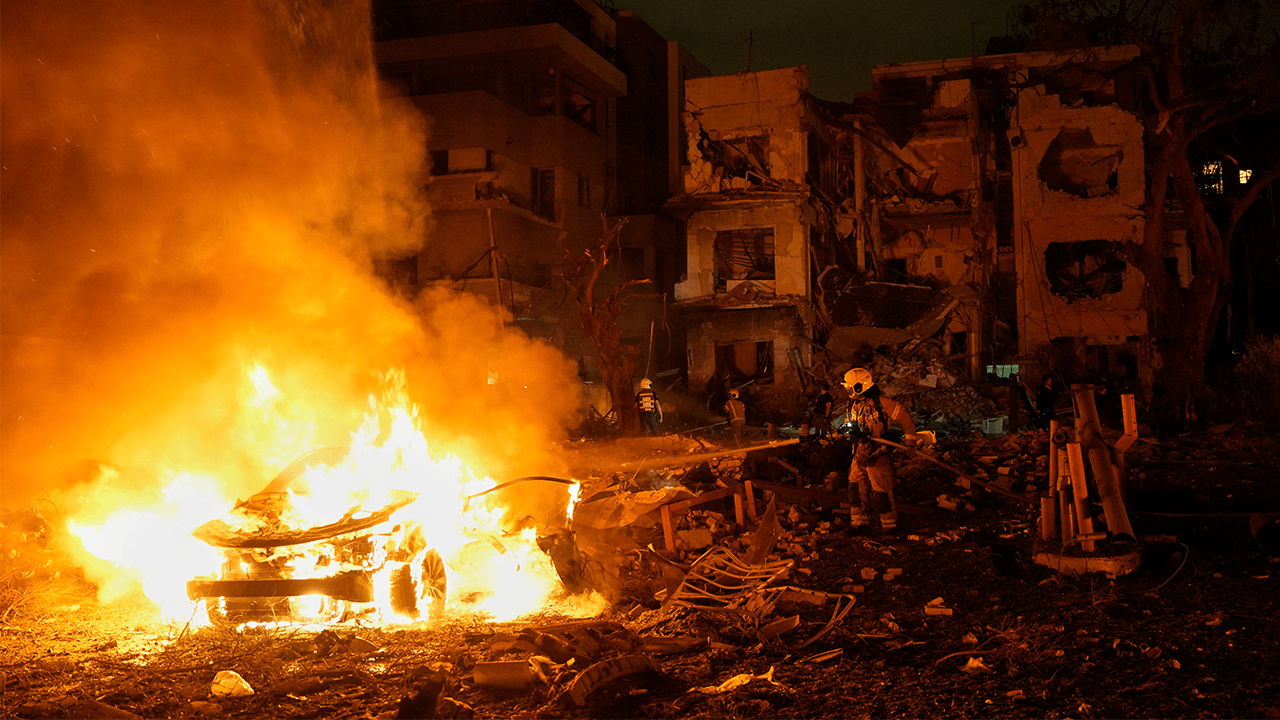
NEWYou can now listen to Fox News articles!
Iran launched a new wave of missile attacks against Israel on Monday morning, killing at least eight people and wounding dozens of others, according to Israeli emergency services.
Four people in their 70s — two men and two women — were among the people killed in the wave of missile attacks that struck four sites in central Israel, the Israeli Magen David Adom emergency service reported.
In addition to those killed, the MDA said more than 100 others had been evacuated and transported to hospitals, including a 30-year-old woman in serious condition, while rescuers continued to search for people trapped beneath the rubble of destroyed homes.
A six-day-old baby was among those pulled from the rubble.
TRUMP SAYS ISRAEL AND IRAN ‘HAVE TO FIGHT IT OUT’ BUT BELIEVES DEAL IS POSSIBLE
Firefighters work to extinguish a blaze after a missile launched from Iran struck Tel Aviv, Israel, Monday, June 16, 2025. (AP)
The attacks raised Israel’s casualties total to at least 24 dead and more than 500 wounded in the conflict that began Friday with an Israeli offensive against Iran.
The Israeli military said its fighter jets responded to the attacks on Monday by striking 10 command centers in Tehran that belonged to Quds Force, an elite arm of Iran’s Revolutionary Guard that conducts military and intelligence operations.
Powerful explosions, likely from Israel’s defense systems intercepting Iranian missiles, shook Tel Aviv shortly before dawn.
A missile fell near the U.S. Embassy branch in Tel Aviv, causing some minor damage to property from concussions of the blast, U.S. Ambassador to Israel Mike Huckabee said on X. There were no injuries to U.S. personnel.
Iran announced it had launched about 100 missiles and promised further retaliation in response to Israel’s attacks on its military and nuclear infrastructure.
EXILED CROWN PRINCE SAYS IRANIAN PEOPLE HAVE ‘TREMENDOUS OPPORTUNITY’ TO TOPPLE WEAKENED REGIME
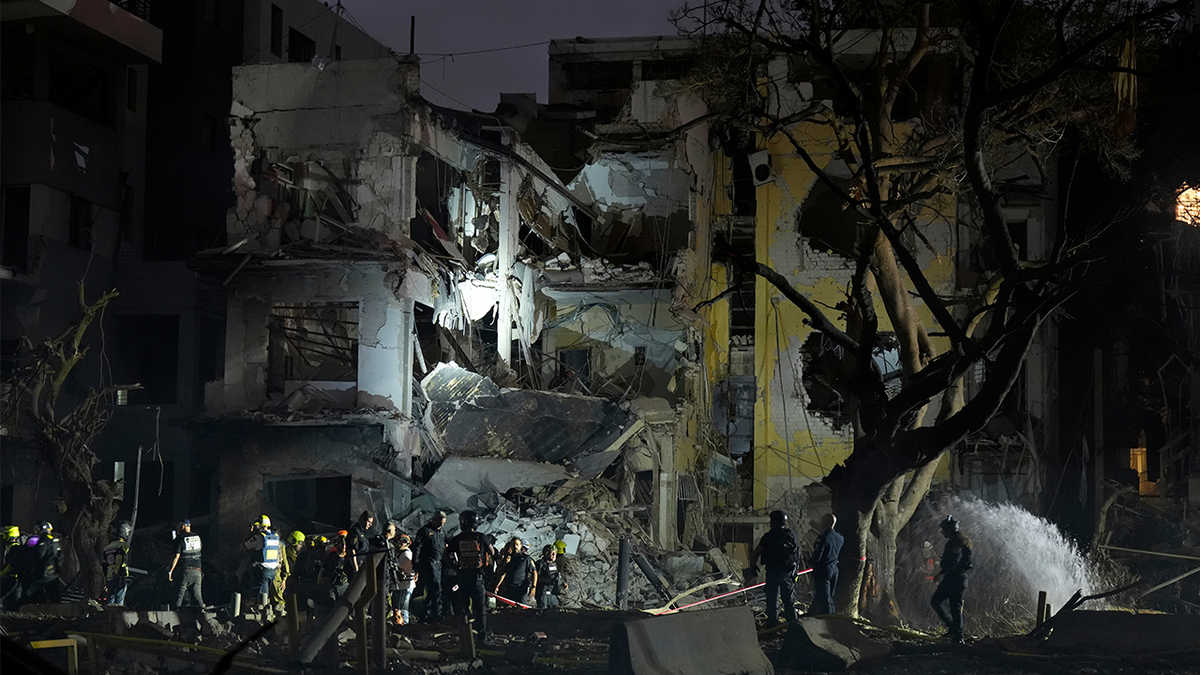
Rescue team work at the site where a missile launched from Iran struck Tel Aviv, Israel, Monday, June 16, 2025. (AP)
At least 224 people have been killed and roughly 1,300 have been wounded in Iran since Israel began its offensive on Friday, and the vast majority of casualties were civilians, according to Iran’s Ministry of Health.
Rights groups, such as the Washington-based Iranian advocacy group Human Rights Activists, have suggested that the Iranian government is undercounting the death toll. The group says it has documented more than 400 people killed, including 197 civilians.
Authorities in the central Israeli city of Petah Tikva said Iranian missiles had struck a residential building, charring concrete walls, shattering windows and pulling the walls off multiple apartments.
On Sunday, during an earlier wave of Iranian missiles on central Israel, Iranian Foreign Minister Abbas Araghchi said Iran will stop its strikes if Israel halts its attacks.
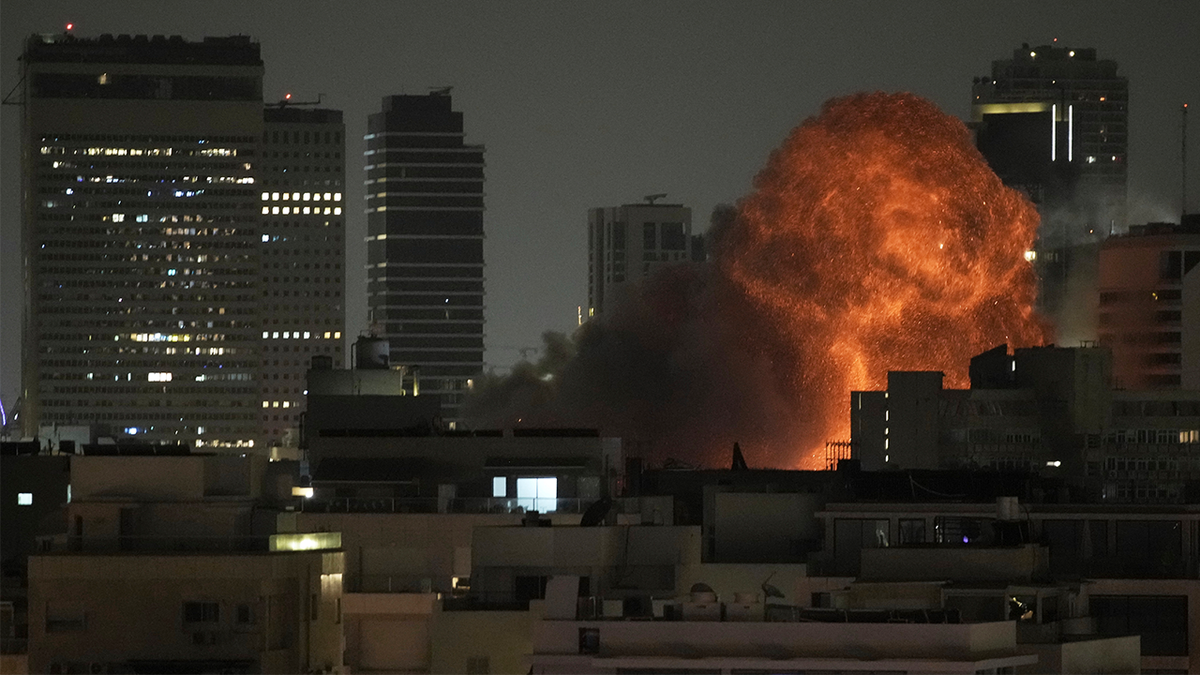
An explosion is seen during a missile attack in Tel Aviv, Israel, Sunday, June 15, 2025. (AP)
CLICK HERE TO GET THE FOX NEWS APP
But after a day of intensive Israeli aerial attacks that extended targets beyond military installations to hit oil refineries and government buildings, Iran’s Revolutionary Guard pledged on Monday that additional rounds of strikes would be «more forceful, severe, precise and destructive than previous ones.»
Israel argues that its assault on Iran’s top military leaders, uranium enrichment sites and nuclear scientists was necessary to stop Iran from obtaining a nuclear weapon.
Iran has maintained that its nuclear program is peaceful, and U.S. intelligence agencies and the International Atomic Energy Agency have said Iran was not pursuing a nuclear weapon.
Fox News’ Yael Rotem-Kuriel and The Associated Press contributed to this report.
INTERNACIONAL
From talk to tactics: Trump pivots on Russia strategy to end war
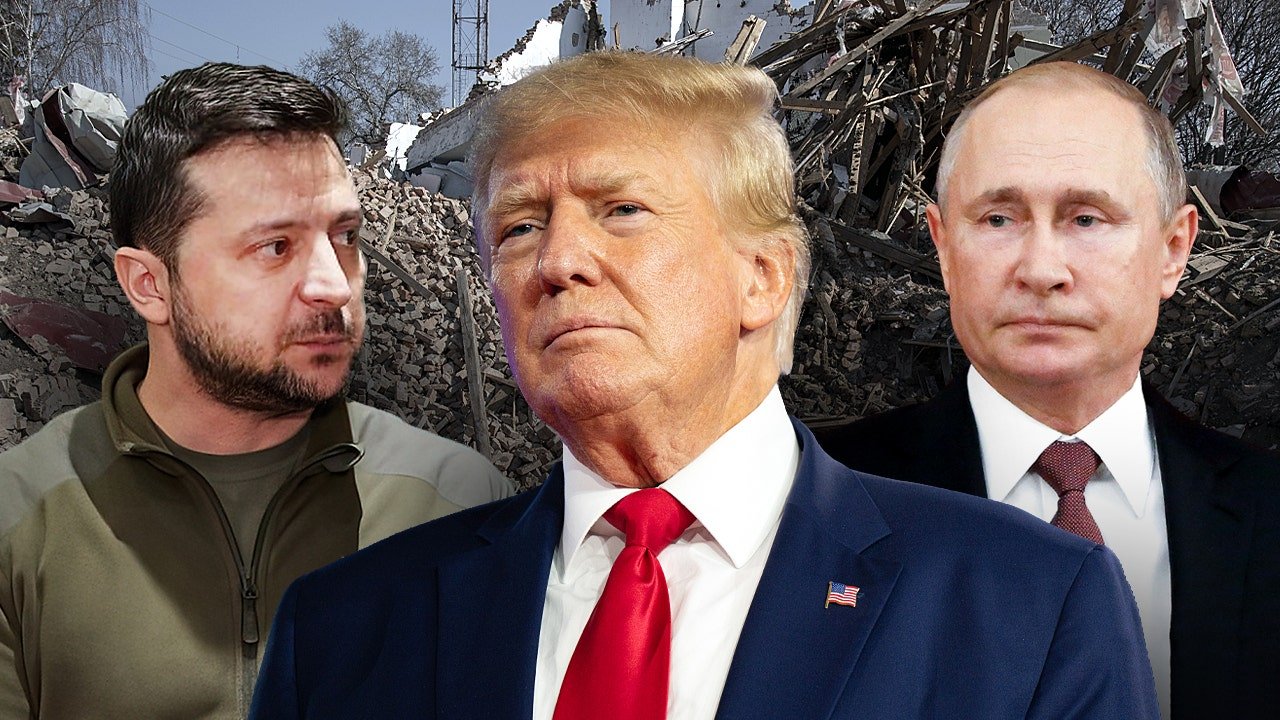
NEWYou can now listen to Fox News articles!
President Donald Trump’s approach with Russian President Vladimir Putin pivoted drastically this month when, for the first time since returning to the White House, he not only confirmed his support for Ukraine in a NATO arms agreement but issued an ultimatum to the Kremlin chief.
The warning came in a clear message: Enter into a peace deal with Ukraine or face stiff international sanctions on its top commodity, oil sales.
While the move has been championed by some, it has been questioned by others who debate whether it will be enough to deter Putin’s war ambitions in Ukraine. One security expert is arguing the plan will work, but it might take years to be effective.
President Trump speaks to Russian President Vladimir Putin during his first term. (Reuters/Jorge Silva)
NATO CHIEF PRAISES TRUMP’S WEAPONS SALES TO ALLIES AS ‘SIGNIFICANT’ MOVE THAT COULD FORCE PUTIN TO NEGOTIATE
«I think it will be effective, and he’s going to stick to that strategy. He’s going to continue to push Putin to return to the bargaining table and negotiate in good faith, not come to the bargaining table, make promises that the Russians don’t plan on keeping,» Fred Fleitz, who served as a deputy assistant to Trump and chief of staff of the National Security Council during the president’s first term, told Fox News Digital.
«That’s something Trump’s not going to tolerate,» Fleitz added. «We will see this is just the first six months of the Trump presidency. This may take a couple of years to solve.»
But Trump campaigned on ending the wars in Ukraine and Gaza, which has proven to be more complicated than he suggested from the campaign trail. And not everyone in the Republican Party has backed his approach when it comes to Europe, including a staunch Trump supporter, Rep. Marjorie Taylor Greene.
«We do not want to give or sell weapons to Ukraine or be involved in any foreign wars or continue the never-ending flow of foreign aid,» Greene said on X. «We want to solve our own problems plaguing our own people.»
Fleitz pointed to Trump’s decision to directly strike Iran and argued it reflected Trump’s ability to be nimble as a leader.
«He looked at the intelligence and realized it was getting too close, and he decided to adjust his policy, which was first diplomacy,» Fleitz said.
«But Trump also specified something very important. He said to his supporters, ‘I came up with a concept of the America-first approach to U.S. national security, and I decide what’s in it,» Fleitz added. «He has ownership of this approach, and he will adjust if necessary.»
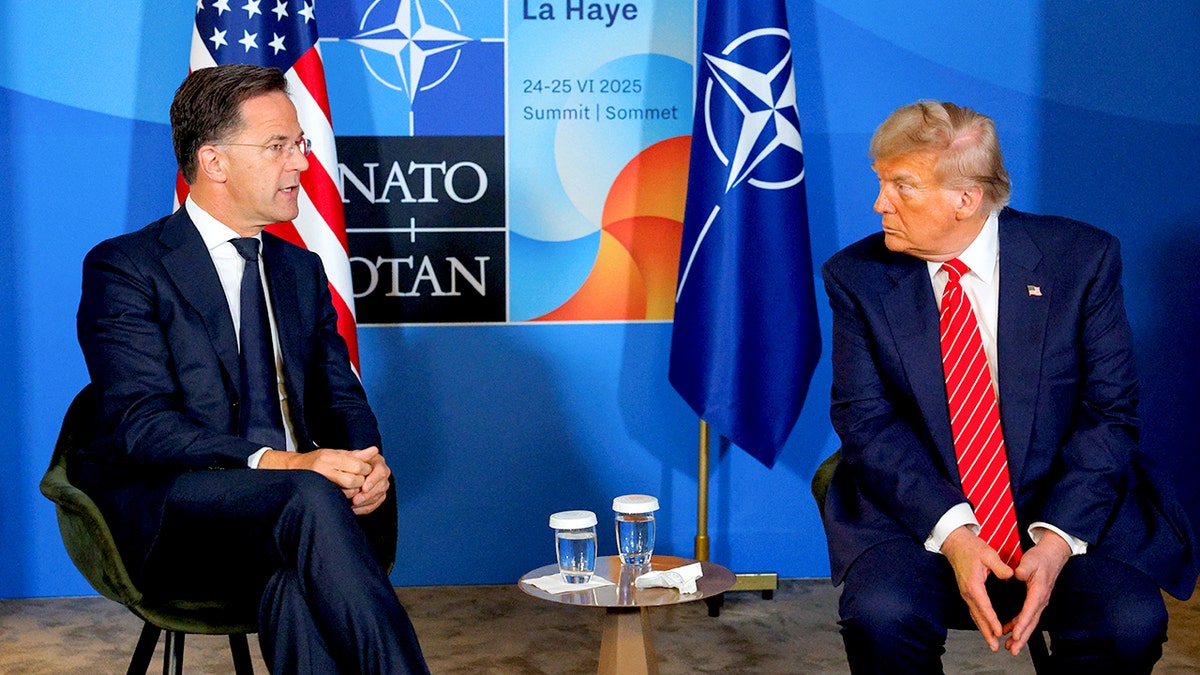
President Donald Trump meets with NATO Secretary General Mark Rutte at the NATO summit in The Hague, Netherlands, June 25, 2025. (Reuters/Brian Snyder)
TRUMP SAYS US WILL SEND PATRIOT MISSILES TO UKRAINE, ADDS THAT PUTIN ‘TALKS NICE AND THEN HE BOMBS EVERYBODY’
Though Trump had made clear from the campaign trail that he wanted to see Europe take a leading role in the war in Ukraine, last week he countered a major talking point from some within his party, including Vice President JD Vance.
Vance has argued against arming Ukraine and said in an op-ed last year, «[It] is not just a matter of dollars. Fundamentally, we lack the capacity to manufacture the amount of weapons Ukraine needs us to supply to win the war.»
Trump agreed to sell NATO nations top U.S. arms that will then be supplied to Ukraine.
«We want to defend our country. But, ultimately, having a strong Europe is a very good thing,» Trump said, sitting alongside NATO Secretary General Mark Rutte.
Security experts have largely argued that the future of Ukraine’s negotiating ability and, ultimately, the end of the war, will play out on the battlefield.
On Thursday, John Hardie, deputy director of FDD’s Russia Program, told U.S. lawmakers on the Helsinki Commission, also known as the Commission on Security and Cooperation in Europe, in a defense briefing that Ukraine needs to be supplied with long-range strike capabilities that can hit key Russian missile and drone plants.
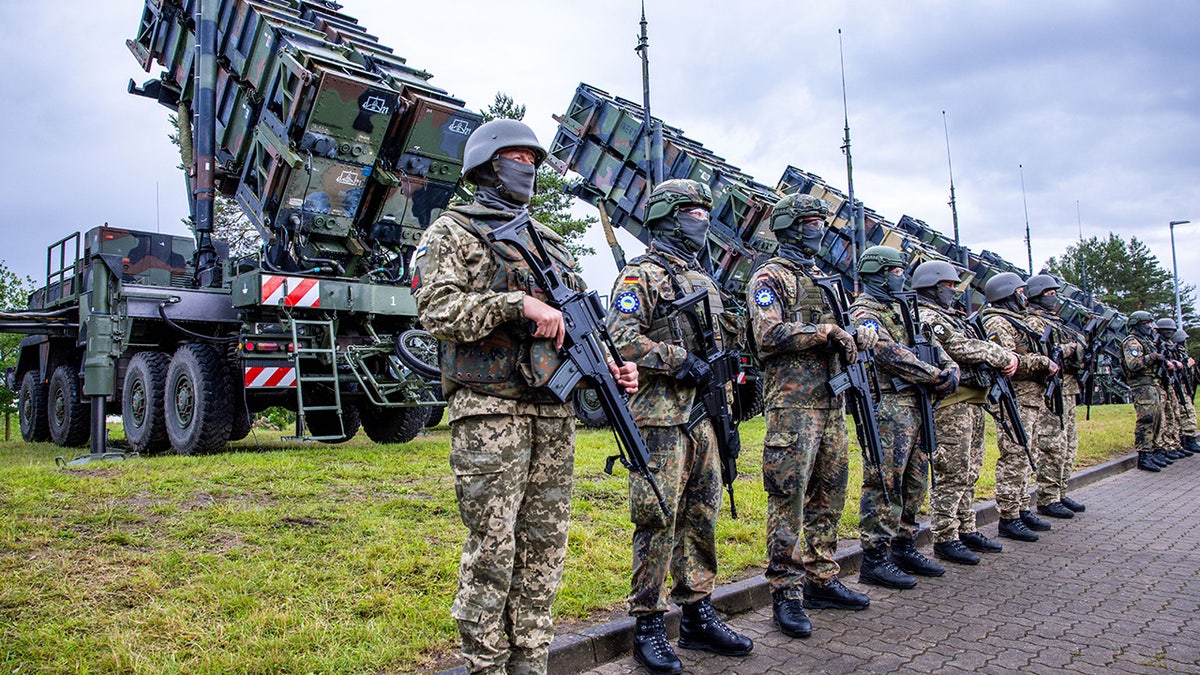
Ukrainian and German soldiers train on the Patriot air defense missile system at a military training area in Germany in June 2024. (Jens Büttner/picture alliance via Getty Images)
‘TRUMP HAS CHANGED THE GAME’: NATO ENTERS BRAVE NEW ERA UNDER PRESSURE FROM US, RUSSIA
«Ukraine shouldn’t be restricted merely to shooting down ‘arrows’,» Hardie said. «An optimal approach will combine both offense and defense. Ukraine needs to be able to hit the ‘archer’ and the factories that make the ‘arrows.’
«Putin will continue his unprovoked war so long as he believes it’s sustainable and offers a pathway to achieving his goals,» Hardie argued. «By shoring up Ukraine’s defense of its skies and enabling Ukraine to inflict growing costs on Russia’s war machine, as well as pressuring the Russian economy and exhausting Russia’s offensive potential on the ground, we may be able to change that calculus.»
But Fleitz, who serves as vice chair of the America First Policy Institute’s Center for American Security, said he believes this war will only be brought to an end when an armistice agreement is secured.
«I think there’s probably going to be an armistice where both sides will agree to suspend the fighting,» Fleitz said. «Someday, we will find a line where both nations will agree to stop fighting.»
Ultimately, he believes this will happen by Ukraine agreeing not to join NATO for a certain period of time, though with Moscow’s understanding that Kyiv will be heavily armed by Western allies.

In this photo provided by the Ukrainian Presidential Press Office, Ukraine President Volodymyr Zelenskyy, right, and President Donald Trump, talk as they attend the funeral of Pope Francis in Vatican April 26, 2025. (Ukrainian Presidential Press Office via AP)
CLICK HERE TO GET THE FOX NEWS APP
«I think there’s a way to do this where Russia wouldn’t be concerned about growing Western European influence in Ukraine, and Ukraine would not be worried that Russia will invade once a ceasefire or armistice is declared,» he added. «Maybe this is a pipe dream, but I think that’s the most realistic way to stop the fighting.
«We know from history conflicts like this take time; peacemaking takes time,» Fleitz said. «I think that over time, Trump is going to have an effect on Putin.»
INTERNACIONAL
La drástica decisión de Israel en tres zonas de Gaza en medio de la crisis humanitaria
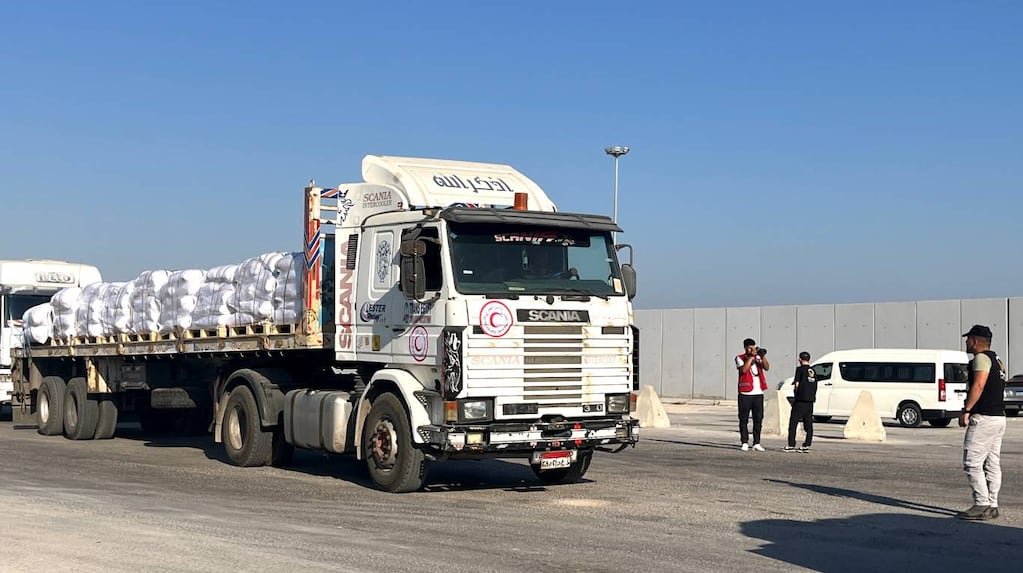
El ejército israelí anunció la suspensión de combates en tres zonas de Gaza en medio de la crisis humanitaria. Desde la fuerza comunicaron el inicio de una “pausa táctica” en los combates en tres áreas pobladas de Gaza durante diez horas al día.
Con esta medida se abrirían rutas seguras para la entrega de ayuda a los palestinos desesperados por la crisis, una serie de medidas para abordar un aumento del hambre en el territorio mientras que el gobierno de Benjamin Netanyahu enfrenta una ola de críticas internacionales por su conducta en la guerra de 21 meses.
Leé también: Emmanuel Macron anunció que Francia reconocerá a Palestina y provocó un fuerte rechazo de Israel
El ejército indicó que frenaría los combates en la Ciudad de Gaza, Deir al-Balah y Muwasi, tres áreas del territorio con grandes poblaciones, para “aumentar la escala de la ayuda humanitaria” que entra a la zona de conflicto. Desde la fuerza anunciaron además lanzamientos aéreos de asistencia en Gaza, que incluyen paquetes de ayuda con harina, azúcar y alimentos enlatados.
Los expertos en alimentos advierten desde hace meses sobre el riesgo de hambruna en Gaza, donde Israel restringió la ayuda con acusaciones a Hamas de desviar bienes para ayudar a fortalecer su gobierno, aunque sin presentar pruebas al respecto.
Las imágenes de Gaza de los últimos días de niños que padecen la crisis humanitaria aumentaron las críticas globales a Israel, incluso de aliados cercanos, que reclamaron por el fin de la guerra y la catástrofe humanitaria en la zona.
Israel aclaró que estas medidas se aplicarían al mismo tiempo que sigue su ofensiva contra Hamas en otras áreas. De hecho previo a “pausa táctica” funcionarios de salud en Gaza advirtieron que al menos 16 palestinos murieron en distintos ataques.
Por qué Israel anunció la suspensión de combates en tres zonas de Gaza en medio de la crisis humanitaria
- Previo al anuncio de suspensión de combates en tres zonas de Gaza en medio de la crisis humanitaria, Israel restringió la ayuda durante toda la guerra. La nueva medida se dispuso días después de que los esfuerzos de alto el fuego entre Israel y Hamás parecieran haber entrado en duda.
- De hecho el viernes Israel y Estados Unidos retiraron a sus equipos de negociación, con críticas a Hamas. El gobierno de Netanyahu dijo estaba considera “opciones alternativas” a las conversaciones de alto el fuego contra el grupo terrorista.
- Luego del fin del último alto el fuego en marzo Israel bloqueó completamente la entrada de alimentos, medicinas, combustible y otros suministros a Gaza durante dos meses y medio, con el argumento de presiones a Hamas para liberar a los rehenes.
- Bajo presión internacional, Israel alivió ligeramente el bloqueo en mayo. Desde entonces permitió la entrada de alrededor de 4500 camiones para que los distribuyan la Organización de las Naciones Unidas (ONU) y otros grupos de asistencia.
- Aunque el promedio de 69 camiones al día está muy por debajo de los 500 a 600 vehículos diarios que la ONU dice que se necesitan en Gaza.
- La ONU advirtió que no pudo distribuir gran parte de la ayuda porque multitudes hambrientas y bandas se llevaron la mayor parte de sus camiones al llegar.
- Como una forma de desviar la entrega de ayuda de la ONU Israel respaldó a la Fundación Humanitaria de Gaza, registrada en Estados Unidos y que en mayo abrió cuatro centros que distribuyen cajas de suministros alimentarios.
- Más de 1000 palestinos fueron asesinados por las fuerzas israelíes desde mayo cuando intentaban obtener alimentos, en especial cerca de esos nuevos sitios de ayuda, según la oficina de derechos humanos de la ONU.
- Israel criticó durante toda la guerra al organismo multilateral, al plantear que su sistema permitía a Hamas robar ayuda, aunque sin presentar evidencias.
- La ONU niega esas acusaciones y dice que su mecanismo de entrega era la mejor manera de llevar ayuda a los palestinos. El ejército dijo que las nuevas medidas se realizaron en coordinación con la el organismo multilateral y otros grupos humanitarios.
Israel, Franja de Gaza
INTERNACIONAL
La batalla por la legitimidad de Israel se taslada de Oriente a Occidente
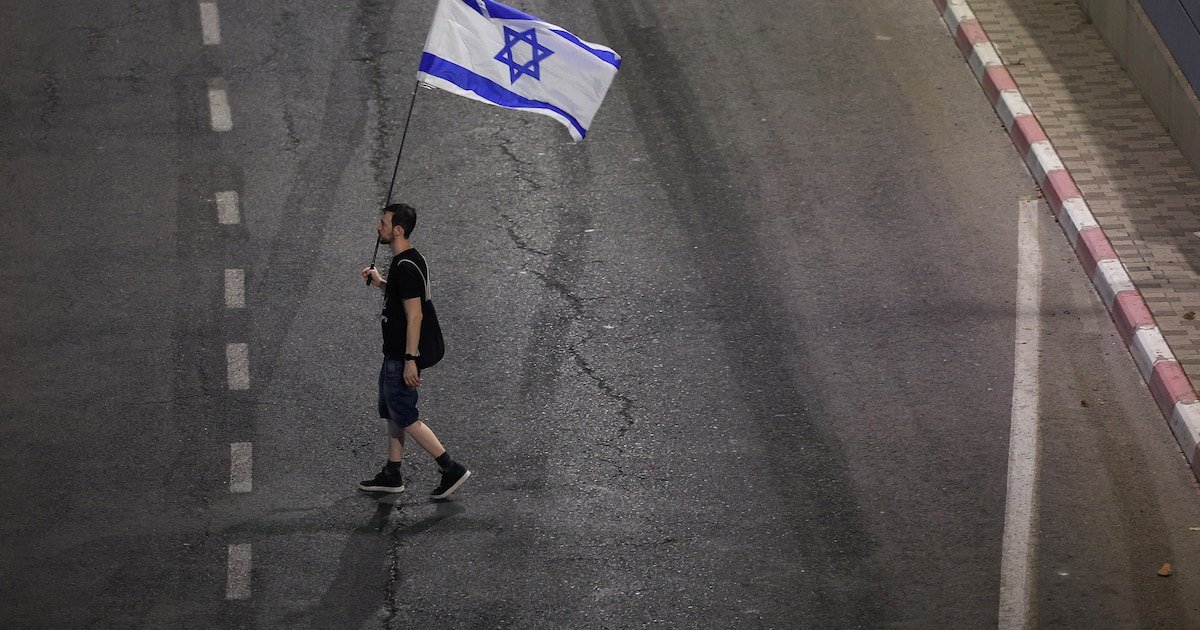
La guerra árabe contra Israel comenzó mucho antes de que Israel declarara su independencia el 14 de mayo de 1948. El sionismo tomó fuerza en Europa a finales del siglo XIX, cuando los pogromos y otras formas de antisemitismo obligaron a un grupo de líderes judíos a buscar alternativas a la vida en Europa. Al mismo tiempo, el nacionalismo surgía como una fuerza política en Europa.
En respuesta, los líderes políticos y religiosos árabes comenzaron a difundir ideas que rechazaban por completo el regreso de los judíos a Tierra Santa. Esto tuvo varias dimensiones.
En primer lugar, calificaron al movimiento sionista como la última manifestación del imperialismo. Presentaron el llamado sionista al retorno a Tierra Santa como una nueva forma del expansionismo europeo en Asia y África. Señalaron que el sionismo era judío, se refirieron a los judíos como “depredadores” y muchos consideraron a los judíos inferiores a los musulmanes.
Durante años, estas ideas tuvieron un poder significativo en el mundo árabe en parte porque la región se sentía asediada por los expansionistas europeos —en particular Gran Bretaña, Francia y Alemania— que buscaban un amplio control en Asia y África.
Esto ocurrió a pesar de que caracterizar al sionismo como una forma de imperialismo era incorrecto en múltiples niveles.
En primer lugar, referirse simplemente al sionismo como imperialismo requería ignorar por completo la historia del pueblo judío y su conexión inherente con la tierra de Israel. No se puede empezar a apreciar la historia judía sin reconocer que, en cada momento importante, Israel fue fundamental para esa narrativa.
Esto fue cierto en su formación como nación. Fue así en su apoteosis. Y, aun después de la expulsión forzosa de los judios de Tierra Santa, el retorno a Israel dominó las aspiraciones judías durante milenios. Estos hechos sobre los judíos fueron deliberadamente ignorados o simplemente desestimados.
En segundo lugar, y en relación con lo anterior, los sionistas fueron atacados por ser europeos. En realidad, los judíos rara vez eran tratados como iguales en Europa, y si hablaban de sionismo, era más para escapar de Europa que para representarla.
En tercer lugar, los sionistas eran considerados ajenos a la región porque no eran musulmanes. Aquí también es relevante la historia de los judíos. No solo el judaísmo tuvo sus años de formación en el Medio Oriente, mucho antes de la fundación del islam, sino que los sionistas soñaban con regresar a su pequeña patria, en medio de un mar de países musulmanes.
Todo ello ponía de manifiesto la debilidad de la afirmación árabe de que la justicia dictaba que no hubiese lugar para un Estado judío en la región.
Hoy, tantos años después, se está produciendo un giro inesperado. Aunque el rechazo sigue siendo una potente fuerza en la región, especialmente –aunque no de manera exclusiva– entre los islamistas, la tendencia se está moviendo en gran medida en la dirección opuesta. Cada vez se oyen menos estas generalizaciones hostiles, sobre la supuesta ilegitimidad del Estado judío, y más sobre los problemas y retos regionales específicos.
Al mismo tiempo, observamos una tendencia contraria entre las democracias occidentales. Los cuestionamientos de la existencia de Israel surgieron inmediatamente después de la masacre del 7 de octubre. Frases como “Desde el río hasta el mar” y “Globalizar la Intifada” parecían justificar la masacre y daban credibilidad a la esperanza en la desaparición del Estado judío.
Todo esto fue producto, en demasiados lugares, de un antiliberalismo disfrazado de justicia social.
El desarrollo histórico de la tradición liberal benefició a Estados Unidos, a los judíos estadounidenses y a la relación entre Estados Unidos e Israel.
Su debilitamiento, especialmente en los campus universitarios, generó una tendencia imprevista: asistimos al declive del tradicional rechazo árabe a Israel, que durante décadas encabezó la lucha contra el Estado judío, y al auge de una nueva oposición, surgida en Estados Unidos y Europa, especialmente en círculos progresistas, que niega la legitimidad misma de Israel.
Para quienes se preocupan por el futuro de Estados Unidos, de la comunidad judía y de la relación entre Estados Unidos e Israel, este debería ser el reto principal de cara al futuro.
Kenneth Jacobson es subdirector nacional de la Liga Antidifamación (ADL).
Middle East,Civil Unrest,TEL AVIV

 POLITICA3 días ago
POLITICA3 días agoLa justicia de Santa Cruz desafío a la Corte Suprema e incluyó a Cristina Kirchner en el padrón electoral

 POLITICA2 días ago
POLITICA2 días agoCristina Kirchner pidió salir a militar para que los que “están hambreando a la gente tengan su merecido en las urnas”

 POLITICA3 días ago
POLITICA3 días agoEl candidato libertario por el que Kicillof despidió a 24 policías denunció “una cacería de brujas” en la Provincia






















